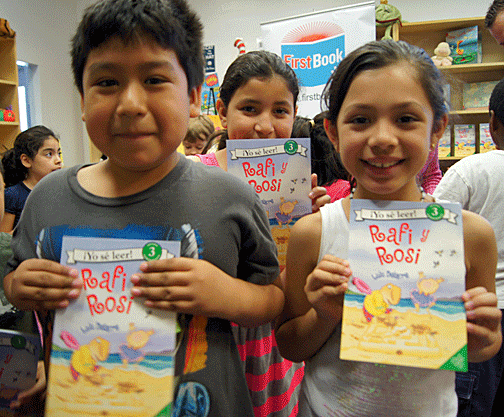 ISI 2015: The Little Explorers Project
by Maria Paredes-Fernandez
ISI 2015: The Little Explorers Project
by Maria Paredes-Fernandez
created on Jul 31, 2015 modified on Jun 24, 2016 08:27
The concept of global citizenship is paramount, especially now in our increasingly interconnected world. It is so important, that Rick Steves once said that our "national security rests upon the foundation of a well-educated electorate with a broad and sophisticated worldview. Ninety-six percent of humanity lives outside our borders — and we risk being left in the dust if we don't know how to effectively engage the world."
However, if we expect our students to effectively engage with the world, they must first be effectively engaged with our curriculum. In a workshop on January 16th, 2015 that former ACTFL President Eileen Glissan gave at a symposium offered by the Penn Language Center, she had mentioned that in the face of new ideas or information, our brains ask, "does this make sense?" and "does this have meaning?". It is through these questions that our students unconsciously ask themselves that determines whether something is learned or not.
How can we ensure that our students be stimulated in the classroom so they can understand the importance intercultural competency? The answer may lie in having them teach others about this importance. “When compared to learners expecting a test, learners expecting to teach recalled more material correctly, they organized their recall more effectively, and they had better memory for especially important information,” - John Nestojko, a researcher in psychology at Washington University in St. Louis.
Knowing this, how can our students reach out and teach others about intercultural competency? A non-profit organization in the United States, First Book, recognizes that "literacy is one of the best predictors of a child’s future success. But a child without access to books won’t have the chance to become an engaged and capable reader." This could not be more true for children that grow up in poverty where they may have limited access to books, especially those in the most rural parts of Ecuador.
Therefore, the objective of this project is to have university students write and print books for Ecuadorian elementary school students so each party can understand more about the world. The model will be similar to The Little Passport series where a piece of the world is brought to the target audience in the form of a book and where they can learn a valuable lesson on intercultural competency.
1. Awareness of the Issue and Possible Action - Students will: research the importance of intercultural competency and recognize the plight of illiteracy in Ecuador. more detail
2. Getting to know their Little Explorers - Students will virtually meet with their target audience to understand the readership preferences of their demographic. more detail
3. The Important Elements of a Children's Book - After having interviewed their target group, students will have to identify the key elements/themes in a children's story to ensure that they are writing an engaging and age-appropriate story. more detail
4. Selection of Type of Series and Research Needed - As a class, they will create a series. Students will have to come to a consensus concerning the common thread linking each of their individual books to the series so they can then commence on their research for the individual book that they will write. more detail
1. The Description of the Task for the Students. - A preliminary sample description of the assignment for the students. more detail
2. The Creation of Their Story Outline - After having researched a country in that they are interested, the students will use the elements of the children's story to create their outline. more detail
1. Video Blogs on Progress - Outside of class, students will reflect on their progress of the bookmaking process in three videos. more detail
2. Peer Review of Outline - Students will give and receive feedback on their story outlines and share their sketches so they can rewrite another draft. more detail
3. The Creation of Their Story - After having received feedback on their story outline, students will work on the final version of their story. more detail
1. The final product: their book - Using a rubric, students will be evaluated on their final product. more detail
2. Reflection of Project through Testimonials - Students reflect on their project through a recorded testimonial. more detail